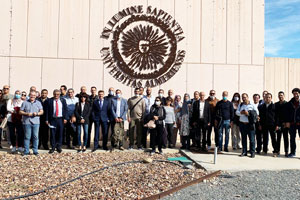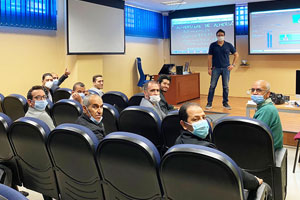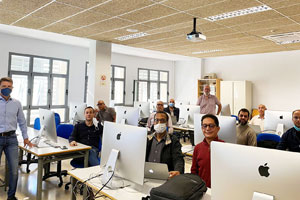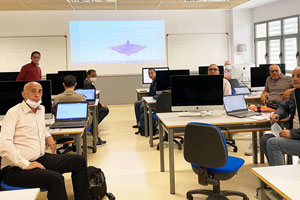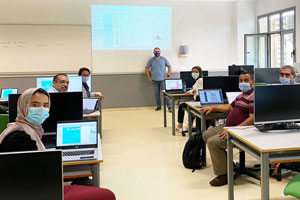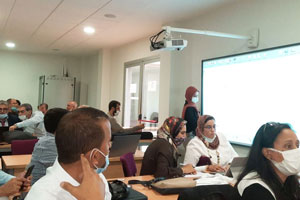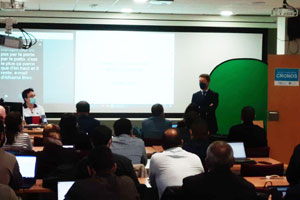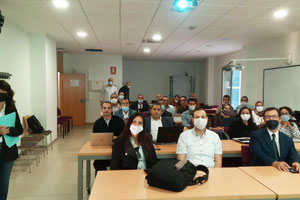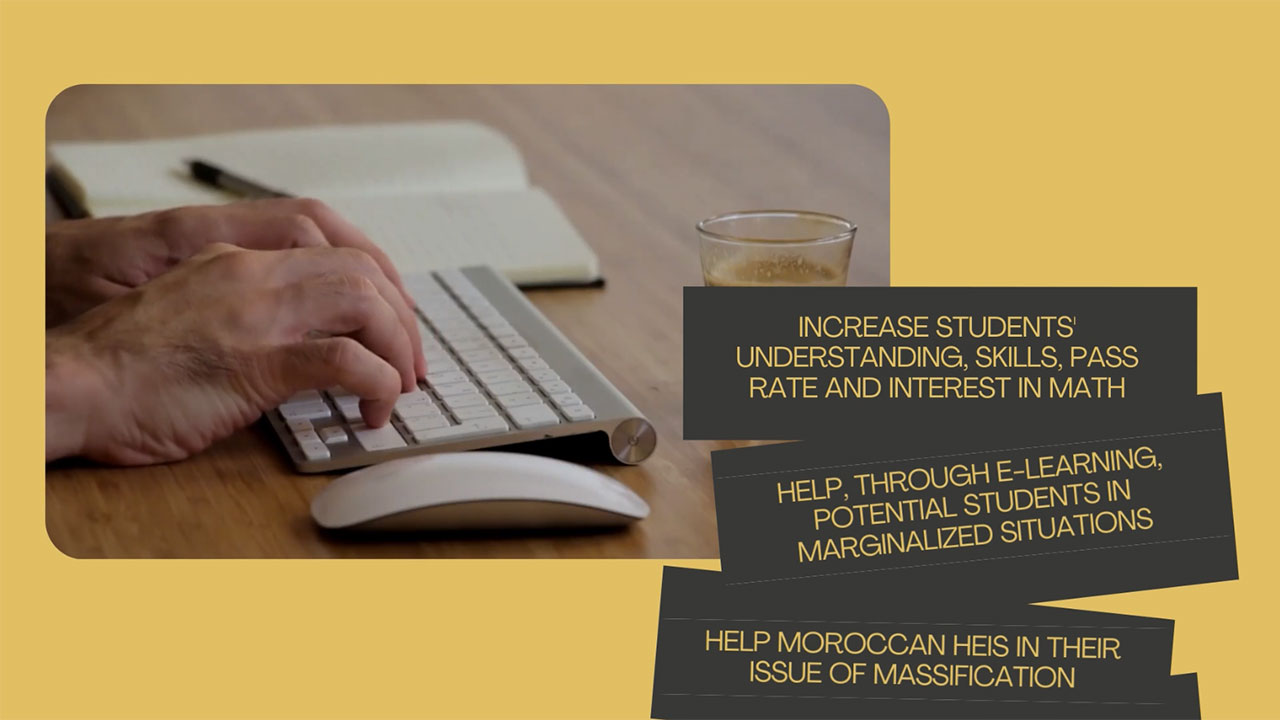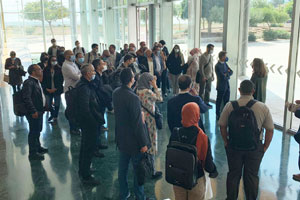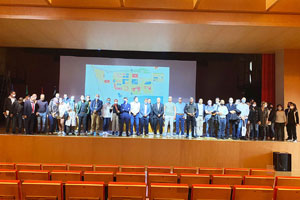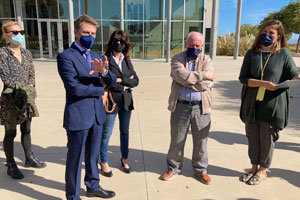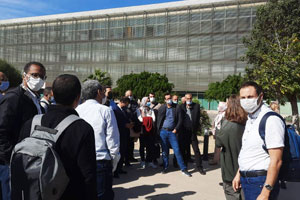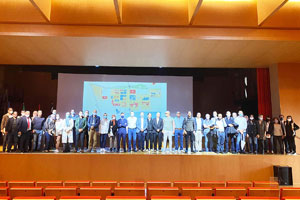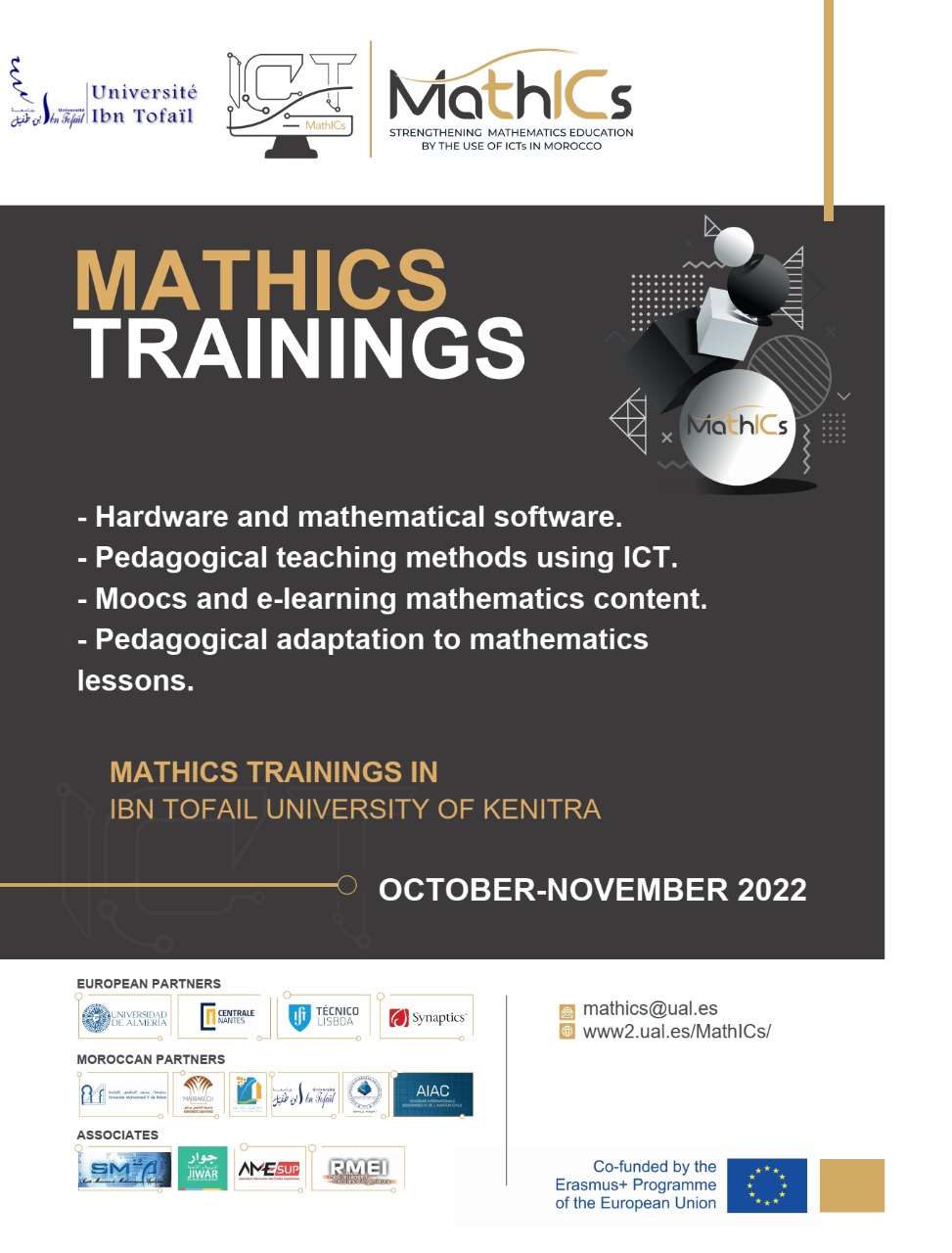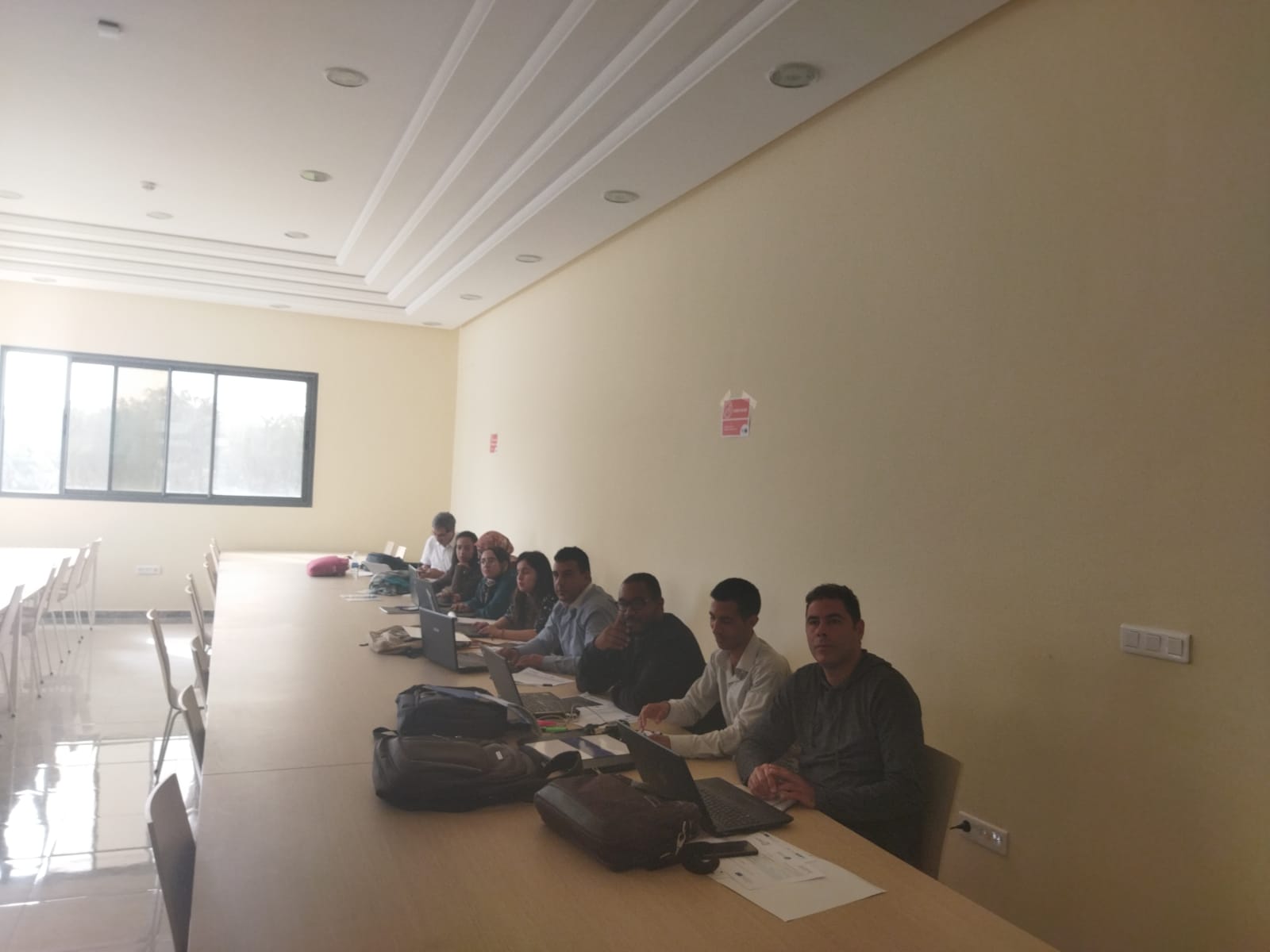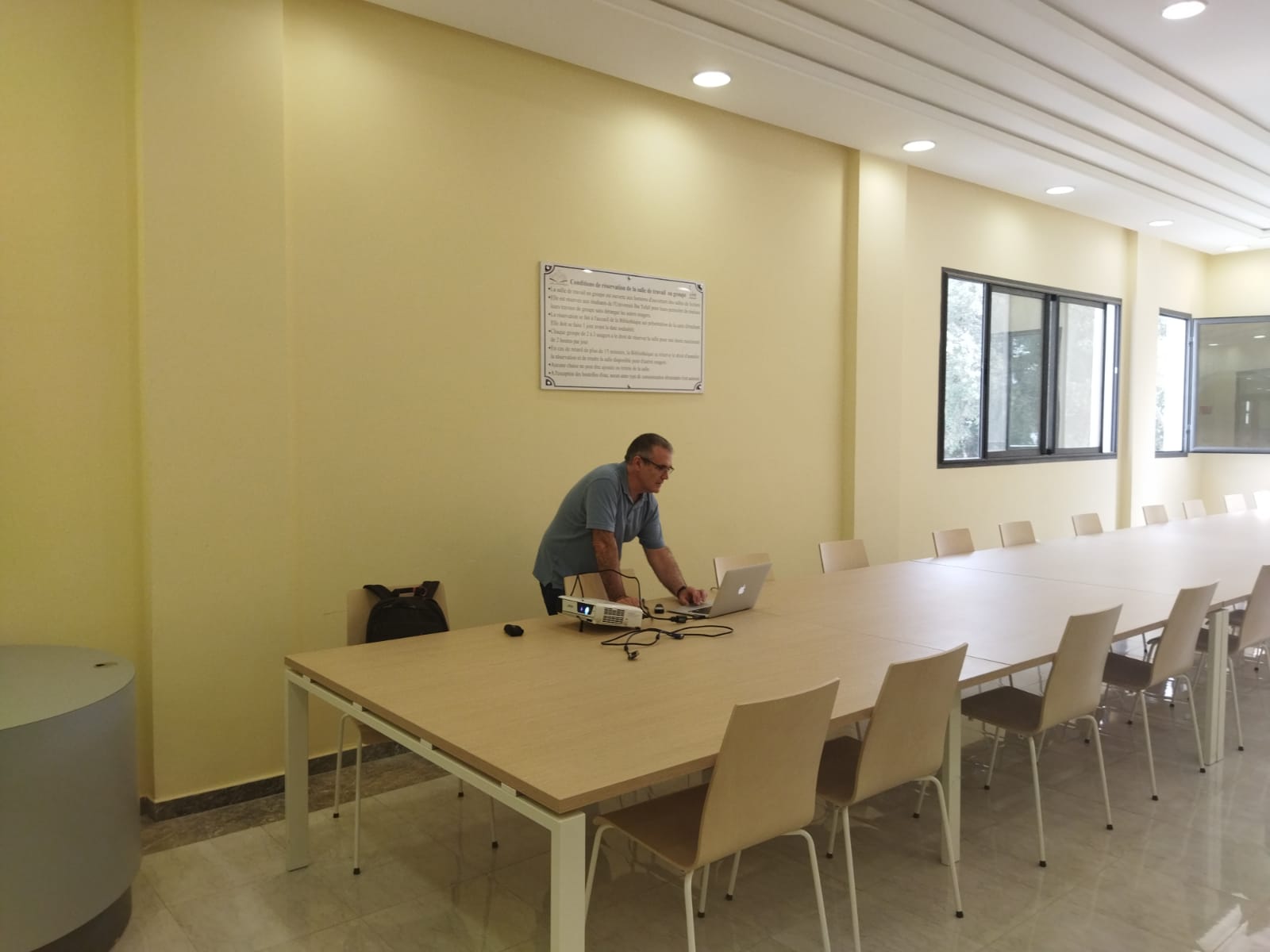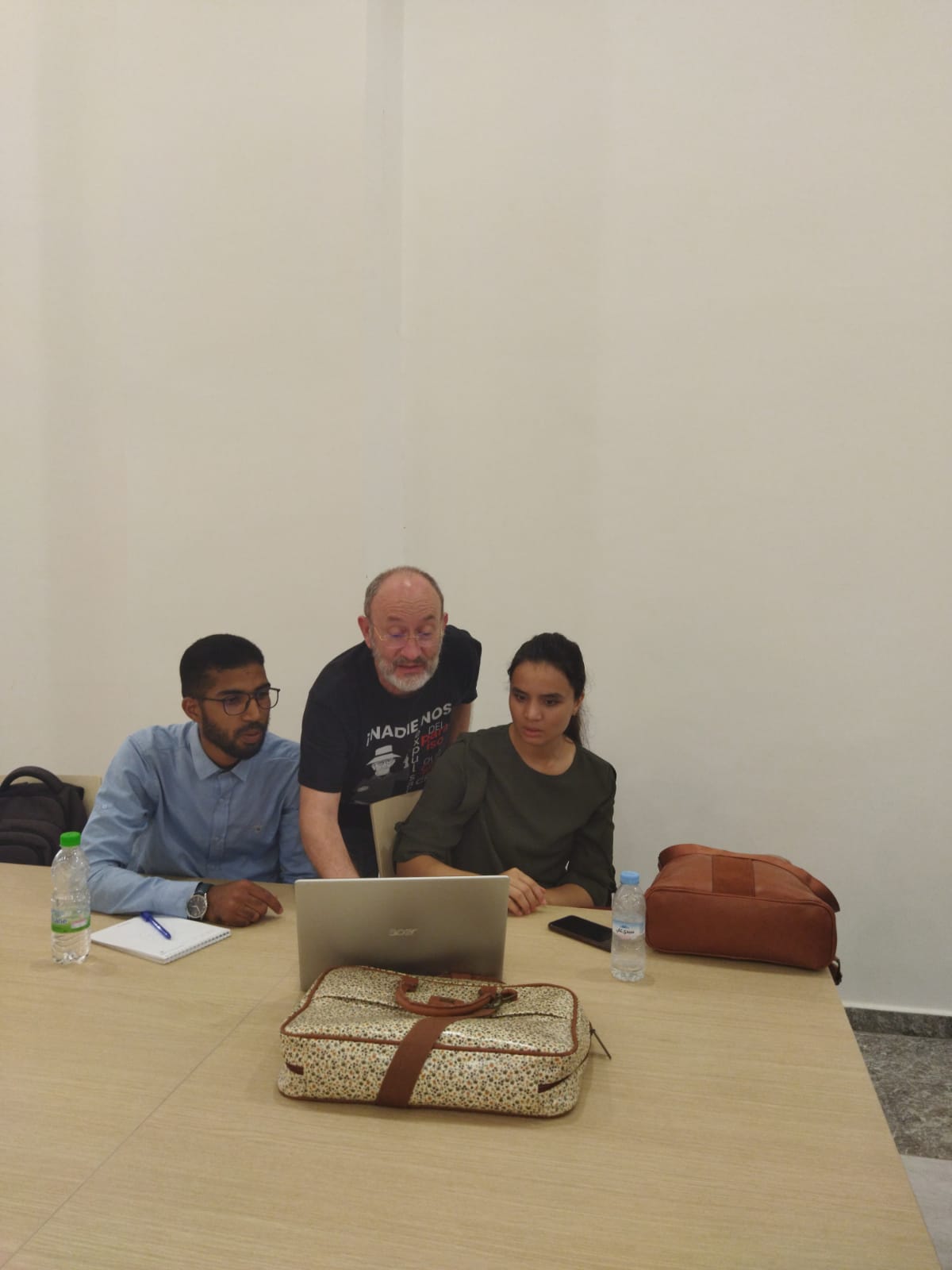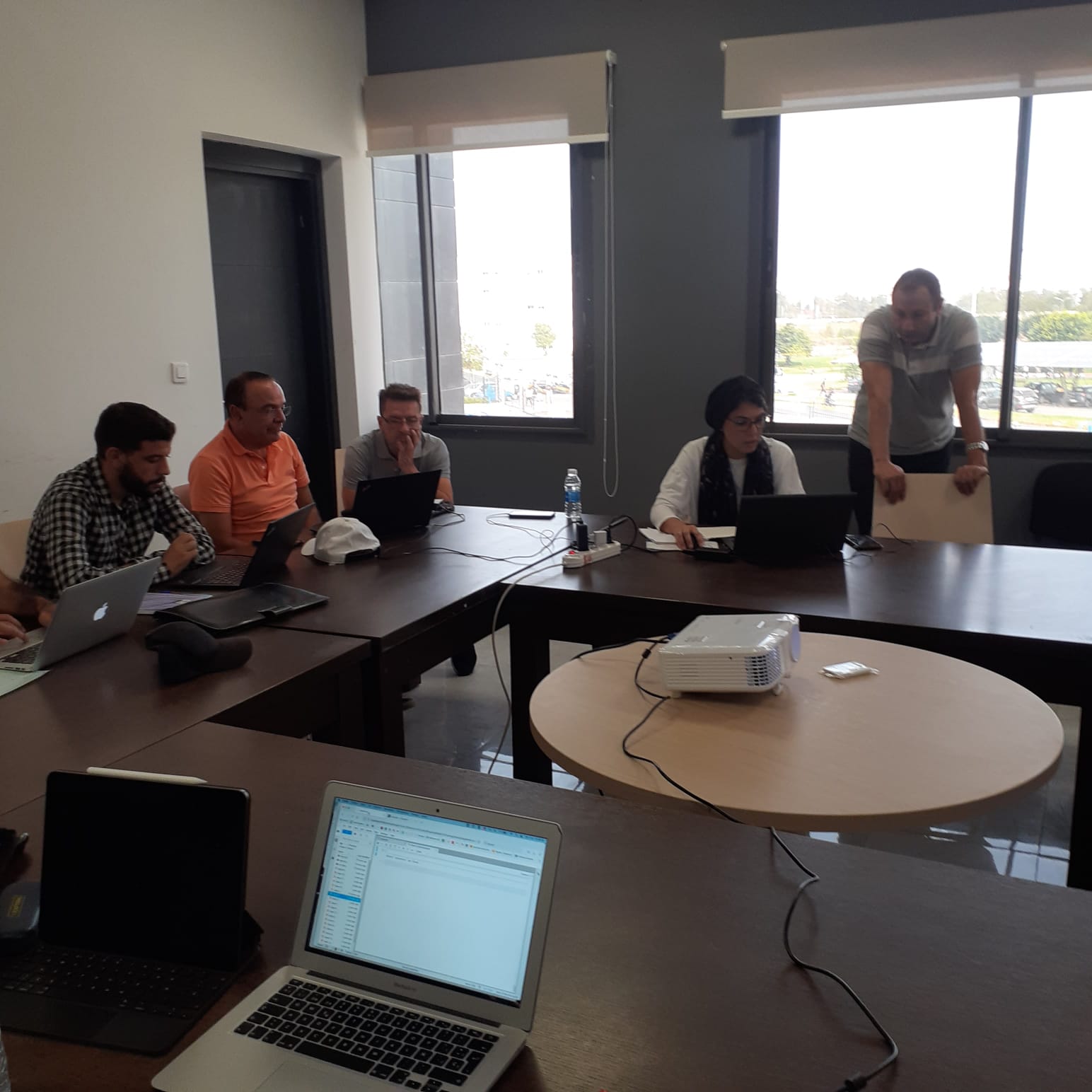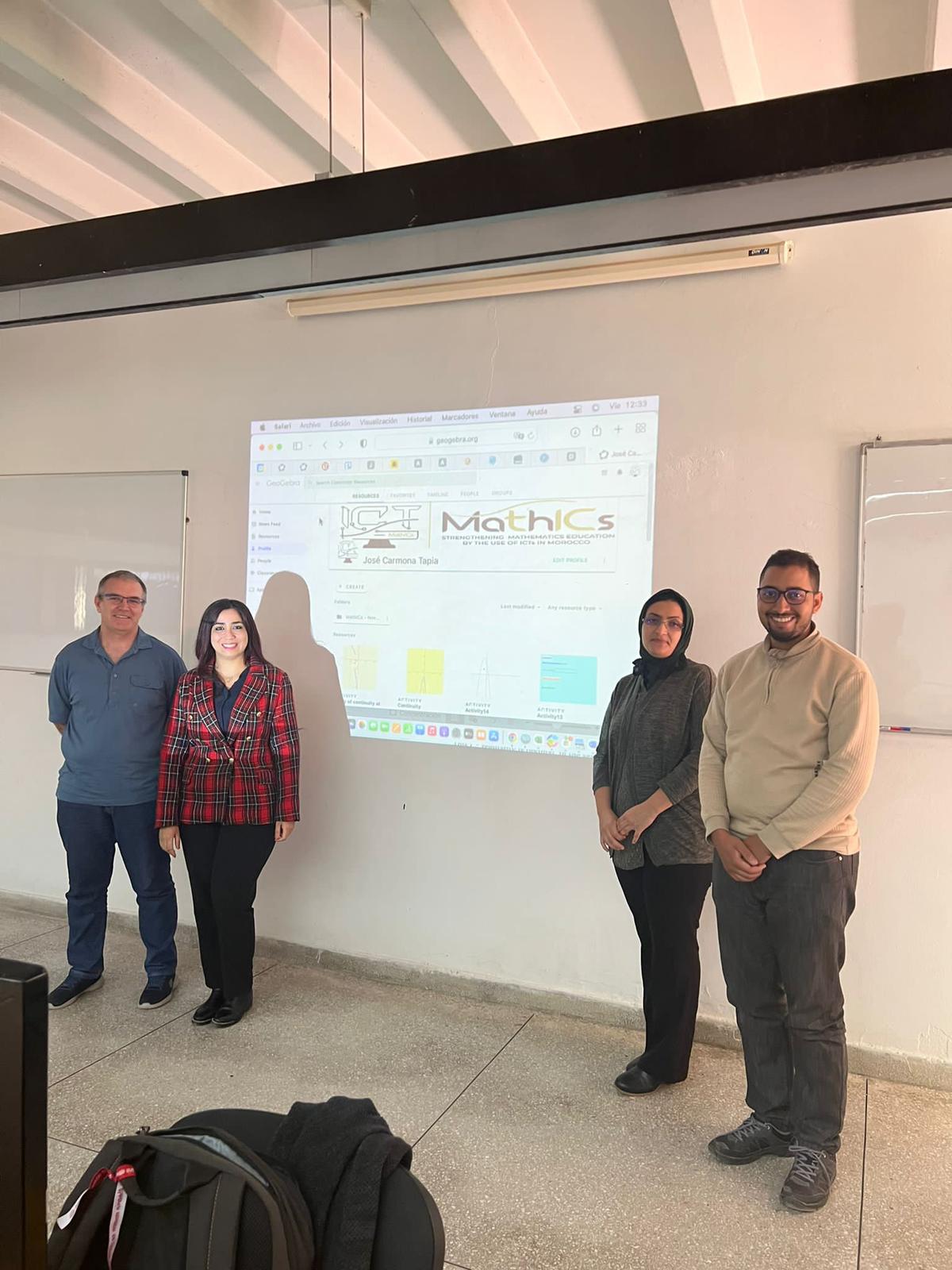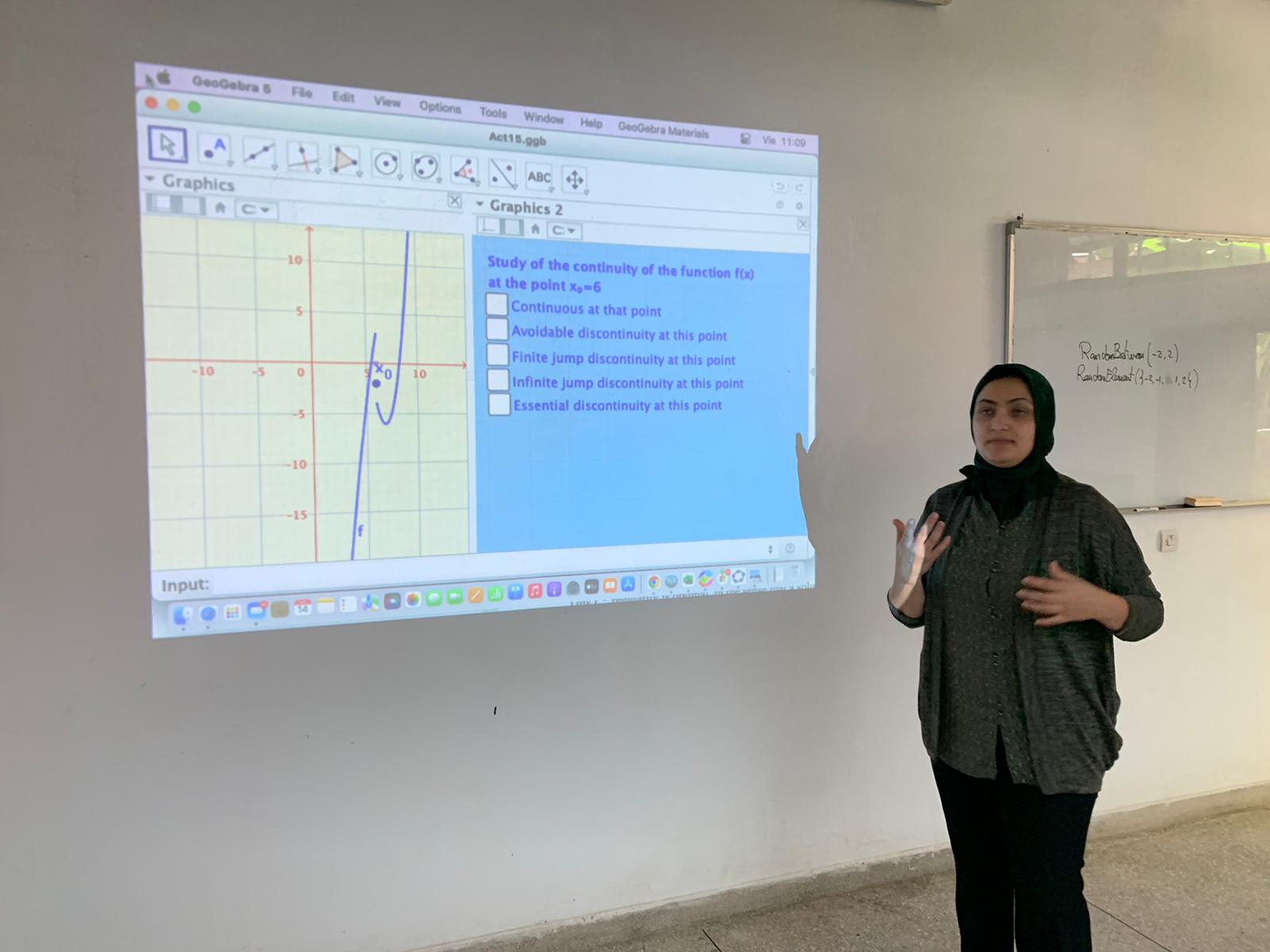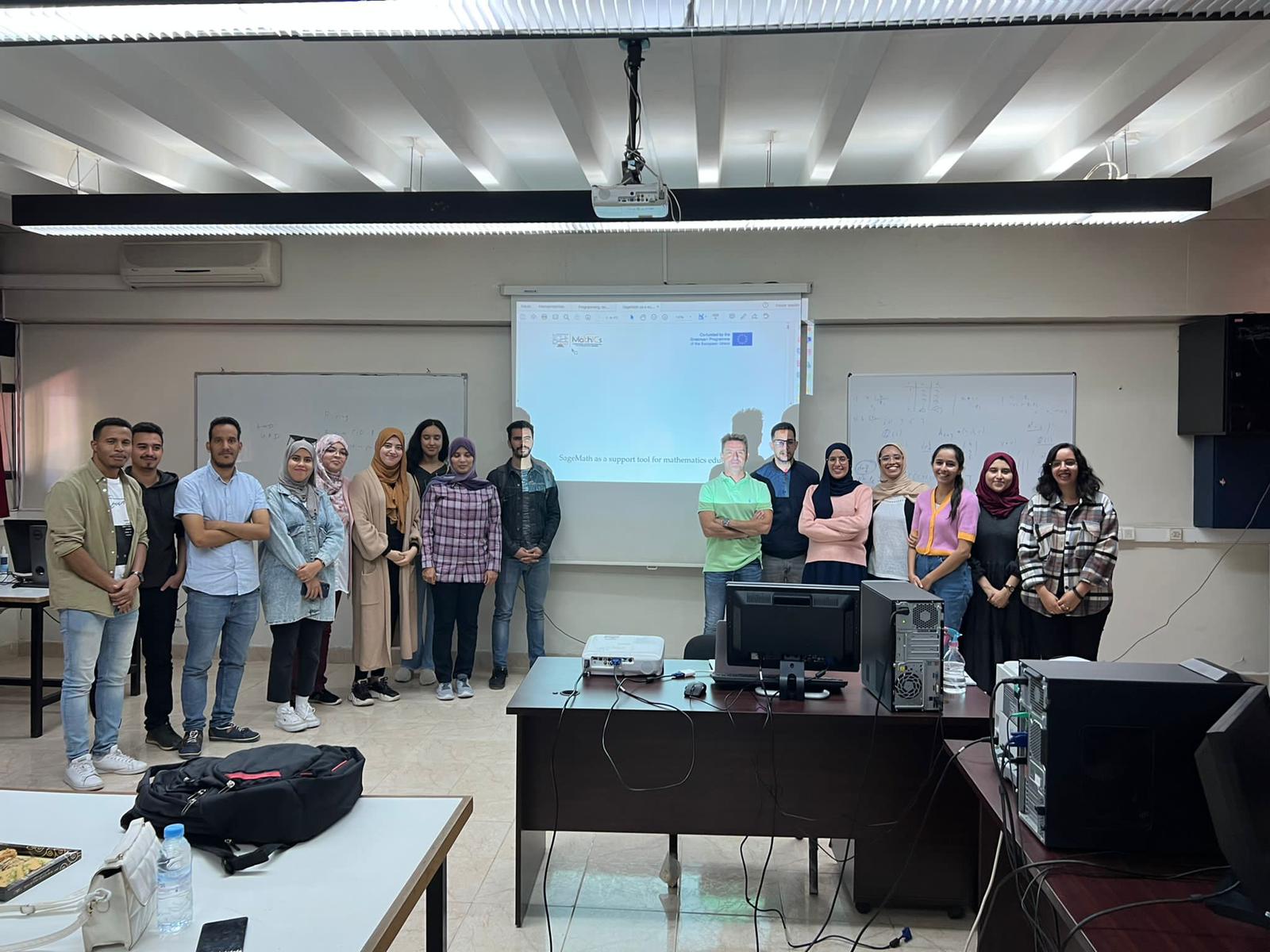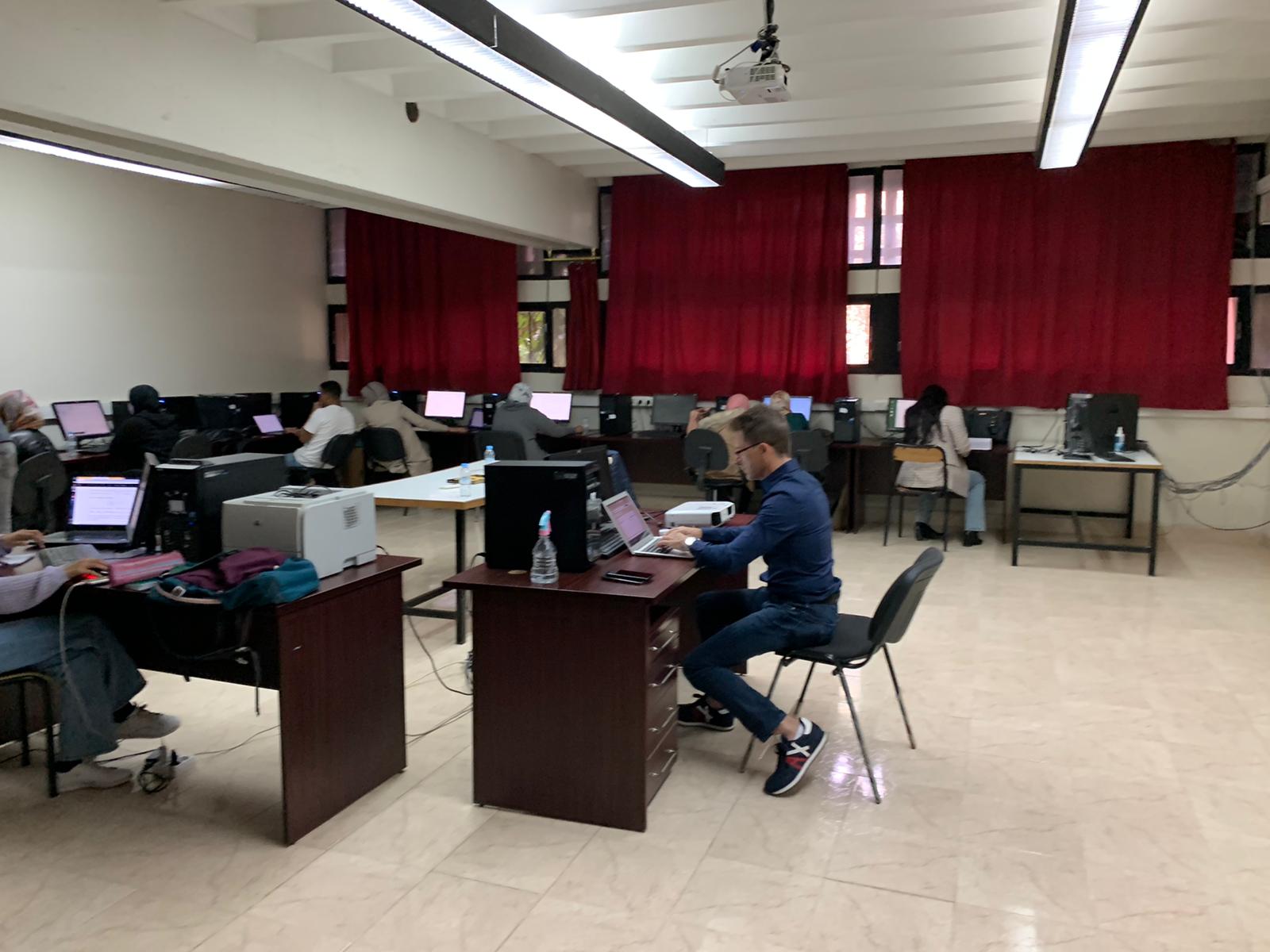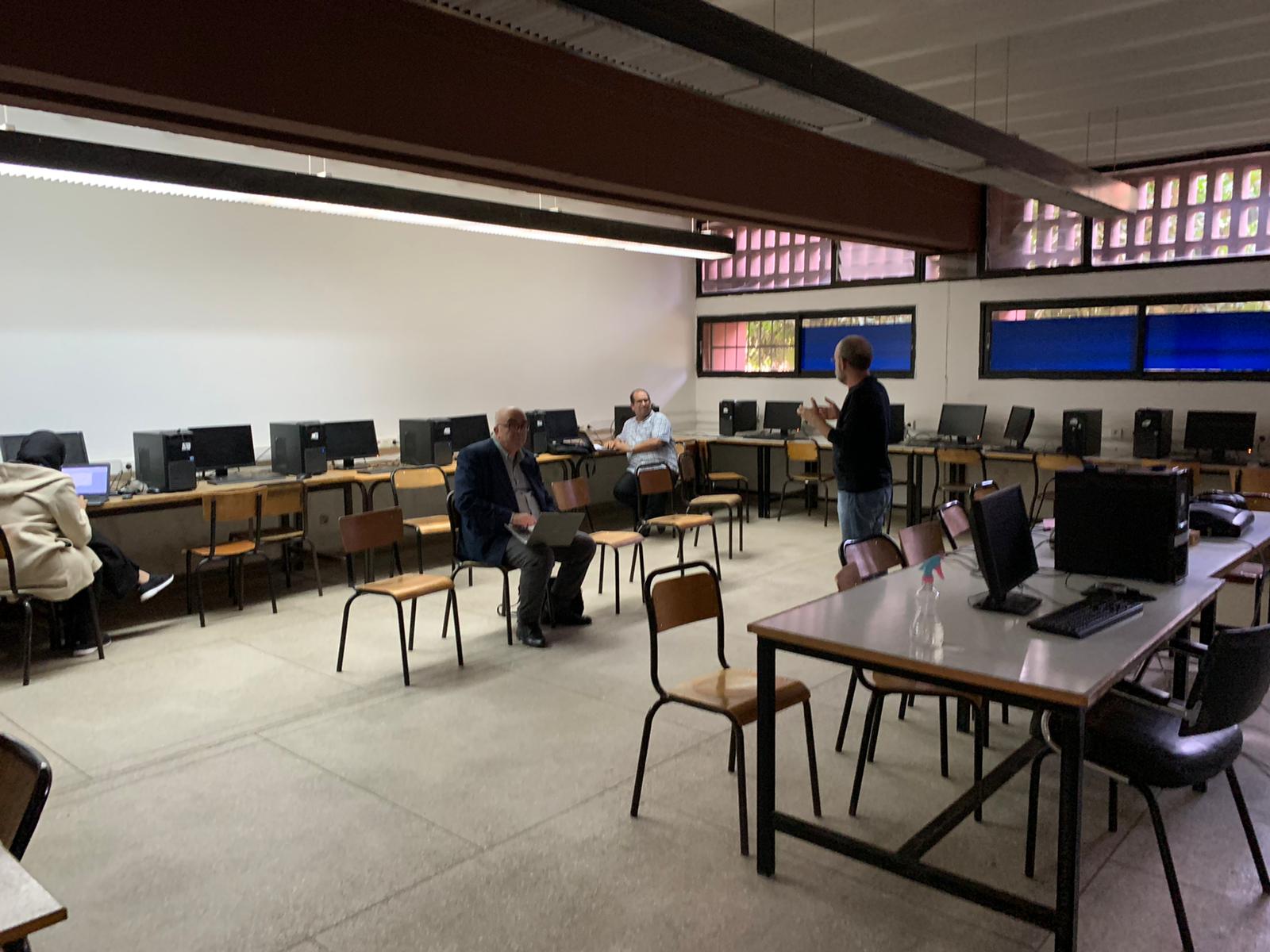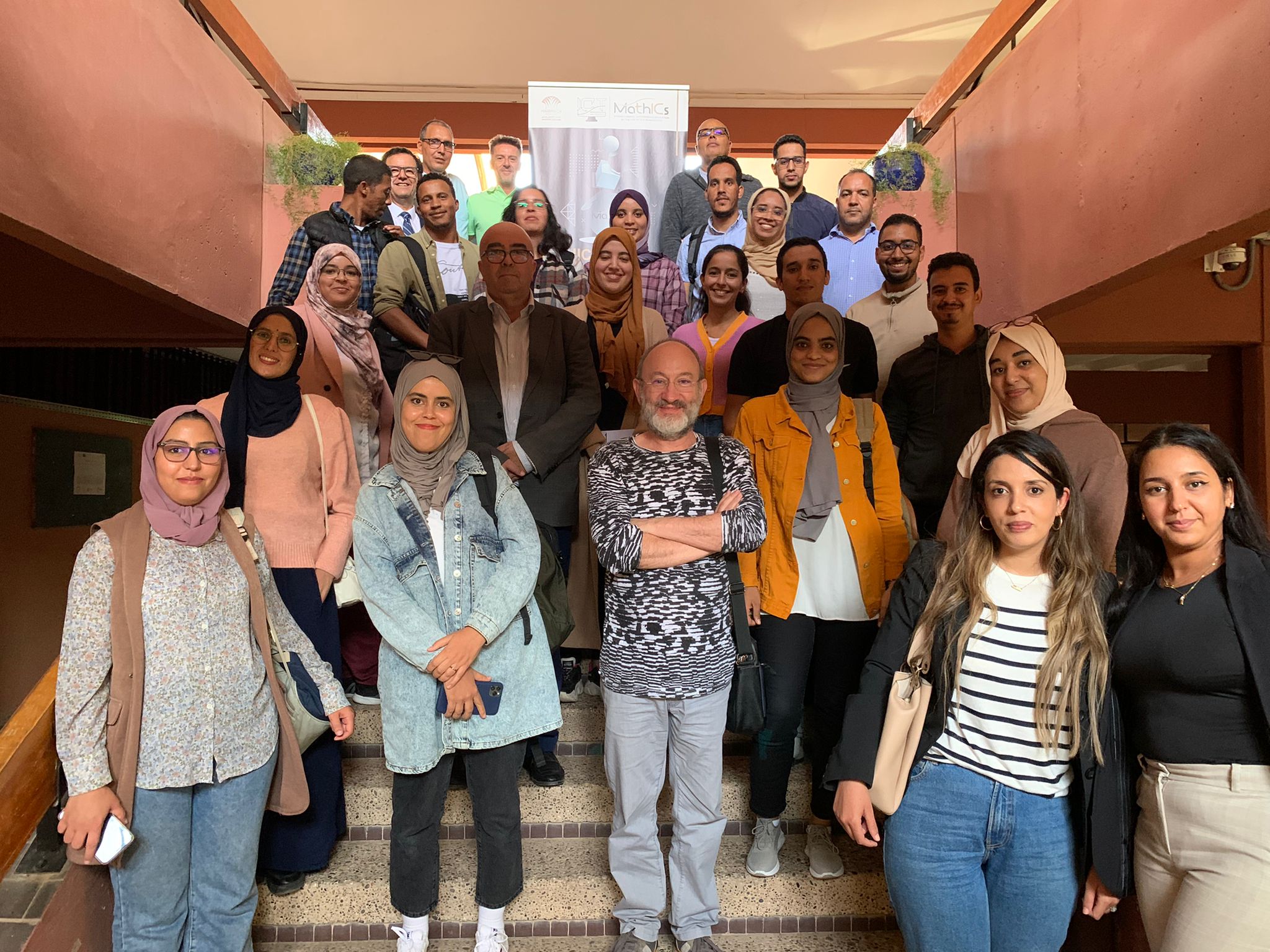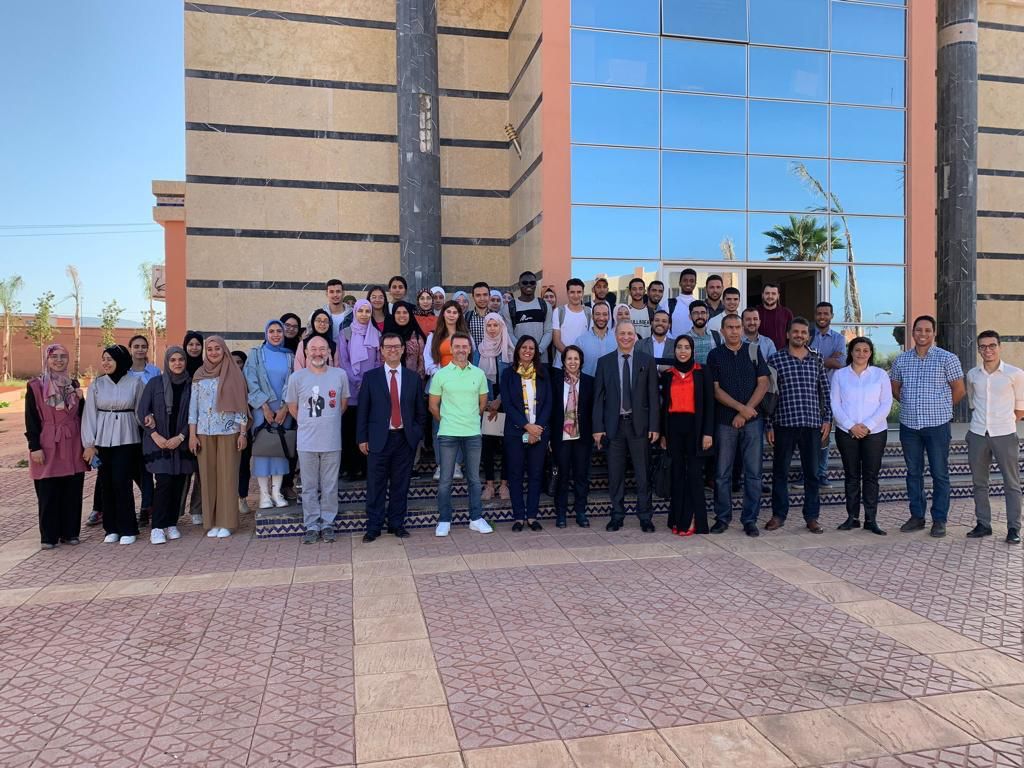Hardware and software courses
The objective of this WP is the training of mathematics professors from the Moroccan HEIs in the use of the new Information and Communication Technologies hardware and software for teaching, and the training of Partner Country HEIs technical staff in the use and maintenance of all equipment and media acquired and installed (WP1).
With the aim of optimizing the results of this training phase, that is, increase to the maximum the number of professors trained and, at the same time, be coherent with the logical budgetary constraints, the training will be split into two periods.
In the first period we will start the formation of a group of 31 professors who will have already been selected at the WPP following the criteria approved by the Steering Committee in the work sessions that will be held during the celebration kick-off meeting.
This training will take place at the University of Almería and will start once the exact hardware and software to be acquired for installation in each Moroccan institution has been determined. Since this part of the training will take place at the University of Almería, it will only be necessary to know the material to be acquired, and not have it installed and functioning in the Moroccan institutions.
This hardware and software training phase will consist of two distinct blocks, which will be taught at the same time:
1. Training on the handling of the hardware acquired by the project and installed in partner institutions and on the software necessary for its operation (1 day).
2. Training in the use of three specific mathematics software programs (3 days). The exact software on which the training will be based, will be determined once the results of the in-depth analysis of the needs of each Partner Country institution carried out in WPP are known.
The type of software that the training will deal with will depend on the type of mathematics taught by each teacher. Namely, the group of professors will be split into three subgroups: one consisting of professors teaching mathematics in engineering or science degrees other than the degree in mathematics, another consisting of professors from the degree in mathematics, and another consisting of professors from formation schools or faculties (faculties that teach future secondary school teachers). This will be this way because there is a wide variety of types of software in mathematics that are increasingly adapted to the specific needs of end users (students of mathematics courses in our case).
In addition, during this training period a visit will be organized to the ICT facilities of the UAL and to different types of official classes in which ICTs are used (teleconferencing classes, face-to-face classes using ICTs, mooc creation). This training phase will take place in the course of four days (which will entail travel and subsistence costs for six days). The course dedicated to the management of acquired hardware and its associated software will be taught by an expert technician from Synapstic S.L. (company managing e-learning teaching at the University of Almería).
The dates of the courses will be agreed between the UAL and the Moroccan institutions, in order not to disturb excessively the daily tasks of the selected professors, or the interests of the institutions in which they work.
The second period will consist exactly of the same courses and the same training, but the training will take place in Morocco, and it will be repeated in three of the partner institutions: the Mohammed 5 University of Rabat, the Cady Ayyad University of Marrakech and the Sultan Moulay Slimane University of Beni Mellal. To teach these courses all equipment acquired and installed in Moroccan institutions will be used. In addition, the courses will be taught by Moroccan professors who have completed their training during the first period. However, and with the aim of assisting in case of unforeseen events, and to correct if necessary, there will always be a European supervisor in the courses taught by Moroccan professors. This will make it possible to considerably expand the number of Moroccan professors who can be accepted to the training in this second period, because the staff, travel and stay costs with this implementation are considerably lower than the travel and stay costs of moving a large number of professors from Morocco to another country and, in addition, we will skip possible visa problems in this second period. Moreover, students from doctorate programs in Mathematics of the Partner Country institutions can be accepted to follow this second period training due to the fact that courses can be taught on a distance learning classroom (with the physical presence of those who prefer to attend the class, and the virtual presence of the rest), and this allows the number of people to be trained to be even larger. Of course, the number can be enlarged up to a certain limit that we will not exceed.
In parallel with the professors training planned in this WP, training courses will be organized for the group of selected technical staff from Moroccan institutions. These training courses will be developed in conjunction with the above-mentioned professors training courses at the coordinating institution (the University of Almería).
As the technical staff group will (theoretically) remain unchanged for the entire duration of the project, this technical staff training module will be organized only once. Any casualties and/or replacements shall be dealt with on a case-by-case basis.
The duration of these training courses will be 3 days (from Monday to Wednesday, which will entail travel and subsistence costs from Sunday to Thursday). The first day course will be the same as the one for the group of professors explained above, so that means this course will be taught just one time for all staff (professors and technicians). In the next two days courses the following contents will be developed:
- 1. Installation of a video conference room for distance learning: physical requirements of the room, necessary equipment, installation and correct arrangement of equipment.
- 2. Installation of a recording room for the creation of moocs and audiovisual content to be used as teaching support or for virtual teaching: physical requirements of the room, necessary equipment, installation and correct arrangement of the material.
- 3. Advanced course on the use of electronic whiteboard in the classroom.
- 4. Use and maintenance of technical equipment installed in Moroccan institutions. Other material possibilities and reasons why the purchased material is chosen.
- 5. Modulation of distance learning classes, with access to the management of the virtual classroom created for this purpose.
- 6. Internship: visits to different types of official classes (teleconferencing classes, faceto-face classes using ICTs, mooc creation) at the University of Almería. This list of contents may be modified according to the results obtained in the in-depth needs analysis to be carried out in WPP.
The staff responsible for delivering the training courses to the selected group of Moroccan professors and technical staff will issue a report setting out the progress made in achieving the objectives set and the level of acquisition of the contents and skills envisaged.
Training activities of the first period
Almeria, 2-5 November, 2021
TRAINING PROGRAMME
The training in Almería was held from November 2 to 5, 2021. There were 36 Moroccan trainees who have benefit from the training.
Ten of them were the technical staff from partner moroccan institutions. The group of Moroccan technicians followed their specific training (installation, maintenance and use of equipment purchased with project funds) without any noticeable problems, alternating between the digital content production classroom and a distance learning classroom.
The remained trainees are made up of 24 Moroccan professors of mathematics and two doctoral students. They were splited into three groups :
-
SageMath for the group of trainees teaching more theoretical mathematics classes.
-
R for the group of trainees who teach mathematics classes more related to statistics.
-
GeoGebra for the group of trainees who teach mathematics classes more oriented to training, to the teaching of future mathematics teachers.
There was also a joint training of both professors and Moroccan technical staff in the use of existing hardware at the UAL (totally similar to that which the Moroccan universities will acquire with the project budget) for the development of teaching using ICT, and online teaching.
In parallel of the training sessions, the organizers of this event have also programmed a visit of several UAL facilities.
After the training on Software and Hardware in University of Almeria, the same training was provided in Morocco by Professors from University of Almeria, José Carmona Tapia (for Geogebra), Luis Oyonarte Alcalá (for Sagemath), Juan Ramón García Rozas (for Sagemath), Fernando Reche Lorite (for R software), in collaboration with some Moroccan professors benefiting from the first training period. This training was given in Moroccan institutions four times as follows:


 English
English Français
Français

